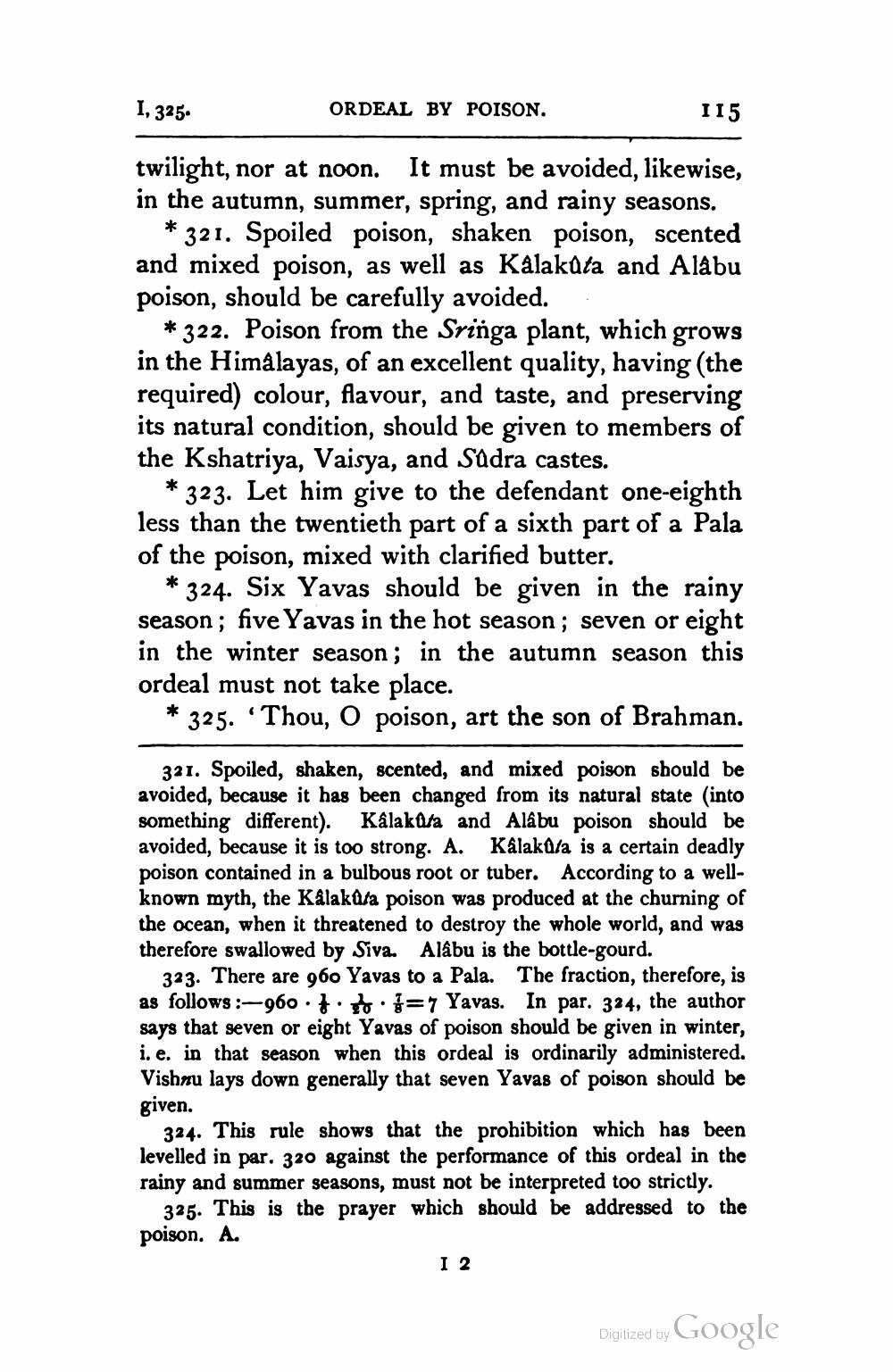________________
1, 325.
ORDEAL BY POISON.
115
twilight, nor at noon. It must be avoided, likewise, in the autumn, summer, spring, and rainy seasons.
* 321. Spoiled poison, shaken poison, scented and mixed poison, as well as Kalakūta and Alabu poison, should be carefully avoided. .
*322. Poison from the Sringa plant, which grows in the Himalayas, of an excellent quality, having (the required) colour, flavour, and taste, and preserving its natural condition, should be given to members of the Kshatriya, Vaisya, and Sadra castes.
* 323. Let him give to the defendant one-eighth less than the twentieth part of a sixth part of a Pala of the poison, mixed with clarified butter.
* 324. Six Yavas should be given in the rainy season; five Yavas in the hot season ; seven or eight in the winter season; in the autumn season this ordeal must not take place.
* 325. “Thou, O poison, art the son of Brahman.
321. Spoiled, shaken, scented, and mixed poison should be avoided, because it has been changed from its natural state into something different). Kâlakata and Alâbu poison should be avoided, because it is too strong. A. Kalakala is a certain deadly poison contained in a bulbous root or tuber. According to a wellknown myth, the Kalakaša poison was produced at the churning of the ocean, when it threatened to destroy the whole world, and was therefore swallowed by Siva. Alabu is the bottle-gourd.
323. There are 960 Yavas to a Pala. The fraction, therefore, is as follows:-960. . .j=7 Yavas. In par. 324, the author says that seven or eight Yavas of poison should be given in winter, i. e. in that season when this ordeal is ordinarily administered. Vishnu lays down generally that seven Yavas of poison should be given.
324. This rule shows that the prohibition which has been levelled in par. 320 against the performance of this ordeal in the rainy and summer seasons, must not be interpreted too strictly.
325. This is the prayer which should be addressed to the poison. A.
I 2
Digitized by Google




